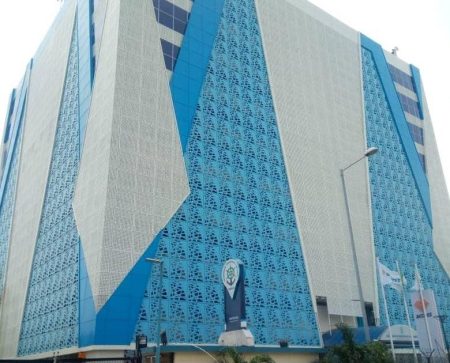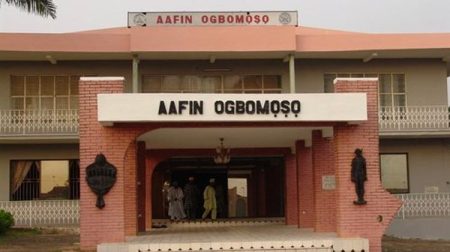The Imperative of Standards in Nigeria’s Construction Industry: Addressing Challenges and Ensuring Sustainability
The construction industry in Nigeria faces a critical juncture, grappling with the dual challenge of meeting the burgeoning housing demands of a rapidly growing population while ensuring the safety and durability of structures. The Standards Organisation of Nigeria (SON), in collaboration with the Federal Ministry of Industry, Trade, and Investment, recently convened a national conference to address the pressing issues plaguing the sector. A key takeaway from the conference was the urgent need for adherence to standardized practices as the cornerstone of sustainable development in the construction industry. This emphasis stems from the alarming trend of building collapses attributed to non-compliance with established codes and standards, resulting in tragic loss of life, property damage, and erosion of public trust.
The conference underscored the multifaceted nature of the challenges confronting the construction industry. While acknowledging the validity of adapting foreign codes and standards, participants stressed the importance of tailoring such adaptations to Nigeria’s specific local conditions and peculiarities. Furthermore, the prevailing economic hardships and hyperinflation have driven up the prices of construction materials, creating a significant barrier to adherence to quality standards. This economic reality poses a serious dilemma for stakeholders, forcing them to choose between cost-cutting measures that compromise safety and adhering to standards that may strain their financial resources.
The conference participants identified several key areas requiring immediate action to address the challenges and promote sustainable practices within the construction industry. Foremost among these is the enforcement of existing laws mandating the involvement of qualified professionals at every stage of the construction process. This includes architects, engineers, and other specialists whose expertise is crucial for ensuring structural integrity and adherence to safety regulations. Furthermore, the conference advocated for the establishment of legal frameworks to hold defaulting professionals, professional bodies, unqualified practitioners, clients, and investors accountable for their roles in building collapses or substandard construction. Such accountability mechanisms are essential for deterring negligence and promoting a culture of responsibility within the industry.
Another critical recommendation from the conference was the implementation of regular integrity tests on buildings, especially those that have undergone changes in their intended purpose. Such tests are vital for identifying structural weaknesses and preventing potential collapses before they occur. This proactive approach to building safety can significantly mitigate risks and safeguard lives and property. The conference also called for the passage of the long-awaited National Building Code, which has been stalled in the National Assembly for years. This comprehensive code is expected to provide a unified framework for regulating construction activities and ensuring adherence to standardized practices nationwide.
The conference also addressed the issue of SON’s limited presence at ports, a situation that hampers its ability to effectively monitor and control the quality of imported construction materials. Thirteen years ago, a directive was issued to remove SON from the ports in a bid to streamline import processes and promote ease of doing business. However, this move has inadvertently created a loophole that allows substandard materials to enter the country, undermining efforts to enforce quality standards in the construction industry. The conference participants therefore called for a reversal of this directive, emphasizing the crucial role of SON in inspecting and testing imported materials to ensure compliance with Nigerian Conformity Assessment Programme (NICAP) certificates.
The conference also highlighted the need for increased awareness and education among industry stakeholders and practitioners regarding the importance of using approved materials and adhering to established standards. Despite numerous sensitization campaigns by SON, many stakeholders remain unaware of the specific requirements for constructing safe, durable, and sustainable buildings. Bridging this knowledge gap is essential for fostering a culture of compliance and ensuring that all stakeholders understand their roles and responsibilities in upholding quality standards. Furthermore, the conference emphasized the importance of professionals in the building sector staying within their areas of competence, avoiding practices that exceed their qualifications and potentially compromise safety.
The challenges facing Nigeria’s construction industry are complex and intertwined, requiring a multi-pronged approach that involves all stakeholders. Strengthening regulatory frameworks, enforcing existing laws, promoting accountability, enhancing SON’s capacity, and fostering awareness are all critical steps towards ensuring the safety and sustainability of buildings in Nigeria. Meeting the housing needs of a growing population while upholding quality and safety standards is a daunting task, but one that is achievable with concerted effort and a commitment to best practices. The recommendations from the conference provide a roadmap for achieving this goal and ensuring a safer and more sustainable future for the construction industry in Nigeria.
The overarching message from the conference was clear: adherence to standards is not merely a technical requirement, but a fundamental necessity for safeguarding lives, protecting investments, and ensuring the long-term viability of the construction industry. By addressing the challenges identified at the conference and implementing the recommended solutions, Nigeria can pave the way for a construction sector that is both robust and responsible, capable of meeting the demands of a growing nation while upholding the highest standards of quality and safety. This requires a collective effort from all stakeholders – government agencies, professional bodies, practitioners, clients, and investors – to prioritize safety, embrace best practices, and build a culture of compliance that ensures the integrity and sustainability of Nigeria’s built environment.














